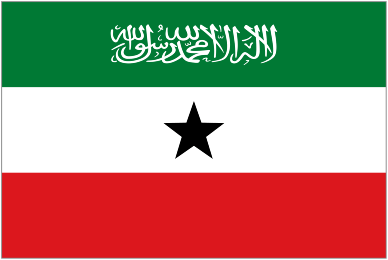As part of HRH´s general ambition to keep expanding its network and increase its regional competence, Project Manager for Africa Niels Jacob Harbitz, right, has applied and been selected for another UNDP/IJ/DJE organised study tour, this time to Somaliland, late March. Harbitz took part on a similar tour of Sudan, including visits to Darfur and the Nuba Mountains, last year. (01-FEB-06)
 This article is based on Institute of Journalism´s own press release, which has been edited for republication here by HRH / Niels Jacob Harbitz. Photo of Harbitz: Silja Nordahl, the Norwegian Helsinki Committee.
This article is based on Institute of Journalism´s own press release, which has been edited for republication here by HRH / Niels Jacob Harbitz. Photo of Harbitz: Silja Nordahl, the Norwegian Helsinki Committee.
In one of Africa´s most war-torn and still tense corners, the relatively small territory called Somaliland, left, is trying to build a democracy.
 -No rule of law, no recognition? Now, what if that applied to everyone?
-No rule of law, no recognition? Now, what if that applied to everyone?
With a constitution, an army, a president, a flag, right, and a currency of its own, one should think that Somaliland would also be recognised as a country and a state. This, however, is not the case. No other countries recognise Somaliland as an independent state, despite its functioning as such. The United Nations and other international organisations are working to push the progress towards having Somaliland fully established as an independent state, with a state bureaucracy and public administration, a reliable rule of law and general recognition and respect of human rights.
50.000 dead in one, long bombardment
Somaliland seceded from Somalia when the latter´s dictator was overthrow in 1991. For years prior to this, Somaliland had resisted his authority, something that was brutally retaliated. Cities were left ruined, dead and empty, hundreed of thousands of people were killed and in one bombardment of the capital Hargeisa alone 50.000 people died. While the northern parts of the former unified Somalia declared its independence and became Somaliland, the southern, still known as Somalia, disintegrated into an all-out war, with clans fighting each other under the shifting regional rule of various warlords.
Women kept out of public and political life
While Somalia has yet to show reliable and lasting signs of recovery, Somaliland has carried out three general elections. Now, the people and politicians alike wonder, if not this significant demonstration of a will to consolidate the country as a democracy soon will affect the rest of the world´s willingness to recognise the country as an independent state. At the same time, however, there are numerous serious problems to be resolved. Among the most obvious are extreme poverty, wide-spread corruption, growing imporatance of tribal / clan / ethnic origin or belonging and a deeply embedded tradition of discriminating to the point of excluding women from most contexts of importance and influence in both public and political life.
Security permitting, a visit to Somalia as well
So – where does one begin trying to sort out all this? Can a real and reliable democracy be born and grow under such harsh circumstances? While the security situation in Somaliland is relatively stable, the same cannot be said about Somalia. There, anything can happen, anytime. Beginning and ending in Nairobi, Kenya, the course will also make a detour to Somalia, provided the security situation permits. Here, different clan leaders and warlords have tried to reach a lasting peace agreement between the different militias and ethnic groups. The course is arranged as a joint venture / co-operation project between the Nordic Office of the United Nations Development Programme, the Norwegian Institute of Journalism (IJ) and its Danish sister institution Den Journalistiske Efteruddanelse (DJE).





